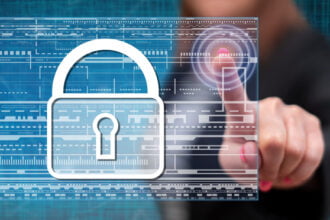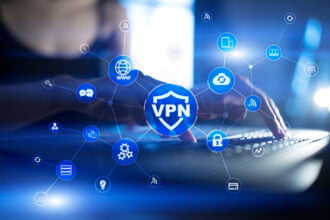Data protection has become a contentious topic in recent years. The number of data breaches has growing exponentially.
In 2011, there were 419 data breaches in the United States. By 2020, that number rose to over 1,000. Data breaches are not going away anytime soon.
Most of the more ambitious data breaches affect larger institutions. Hackers stand to make a lot more money stealing data from corporations, major nonprofits or government agencies.
However, consumers are not immune from having their data stolen either. Hackers often target individual users and try to steal their data. They may try to access their financial information, get valuable data related to their workplaces or try to extort them with sensitive and embarrassing information that they uncover.
You can’t afford to leave your data vulnerable to cyberattacks. The good news is that there are a lot of great antivirus applications that can keep cybercriminals trying to steal it at bay. You can also use more robust firewalls and other security measures that use data analytics to safeguard your systems.
Protecting Your Data with Antivirus Software is More Important than Ever
Computer users well understand that an antivirus program protects systems from viruses. Among the many cybersecurity options that exist, antivirus is one that most people who use a computer will have heard or used. Keep reading to find out more about the trusted antivirus that has been with us for decades, what it is for, and some of the best, expert-reviewed antivirus solutions you should be using today to protect your system from nasty infections, ransomware and data breaches optimally.
A Brief History of Viruses and Antivirus Programs
Most of us will have heard of antivirus programs, even the older folks. This is because the history of antivirus software goes back to the late 1980s. It is a concept that has grown together with the evolution of computers and computer systems. By 1987, there were already two antivirus programs available, and, keep in mind, this was in the early days of commercial computing before the internet was open to everyone. Yet, what is interesting is that antivirus solutions existed even before that in the 1970s. Computers were not available to the public but were used in the industry for calculations and other work. They couldn’t contain massive amounts of data, so hackers were less likely to see them as viable targets. These were called mainframes, and they were enormous, hulking monstrosities that would take up entire building floors. Today, the same kind of power is stored in your smartphone.
At the beginning of all of it, a notorious virus called the Creeper, the first known virus, infected the Digital Equipment Corporation’s PDP-10 systems, which ran the early TENEX OS (operating system.) So naturally, as computers became more complex and viruses became more widespread, antivirus solutions increased to counter this. Later, the spread of the internet throughout the 90s and 2000s would create a whole new world of possibilities for both virus makers and antivirus makers.
As far as the question of who pioneered antivirus software goes, this claim is disputed to this day. Ray Tomlinson deleted the famous Creeper virus in the early days with a program known as The Reaper. The Reaper, however, was not technically an antivirus program, it was a virus itself. Antivirus software came along at the end of the 1980s and 1990s. Although, at the time, antivirus software was very one-dimensional and not updated for long periods, it was the only defense against infected files.
Before the internet came along, viruses were installed into computers and computer systems via floppy disks. Antivirus programs at the time could only look at .exe (executable) files and boot sectors. But soon, the internet would become widely available, and virus makers had a great new avenue to spread infections without physically having to attach a floppy disk or anything like that.
Into the 80s and 90s, antivirus brands started to appear, such as G Data Software AG that protected DOS-based environments (the famous black screen and the blinking cursor where you had to input commands to access trees of information.) Following G Data, the McAfee brand we know and trust today appeared in 1987. A team of Hungarians would also release NOD32 in 1987, which has also been on the market for decades. At the end of 1987, what could be considered as the first complex antivirus programs were released; Anti4us and FlushShot Plus. However, these no longer exist as such. Finally, throughout the 90s and the 2000s, we would see several famous brands crop up; Avira, Avast, Symantec (Norton), AVG, and nearer to the 2000s, brands such as Kaspersky arrived. Many of these brands are still producing antivirus software today, in 2021.
What Are Viruses And How do Antivirus Programs Work?
The term virus was only appropriately defined for the first time in the 1980s by a Hungarian researcher named Peter Szor. He described it as “a code that recursively replicates a possible evolved copy of itself.” This is precisely what a virus is, as their signature is to replicate just as real biological viruses do. Viruses, to this day, have caused hundreds of billions of dollars worth of damage to systems, and people have been collateral damage as a result of their data being corrupted. Some of the most famous instances include ILOVEYOU, Storm Worm, and MyDoom. To put that into perspective, in the year 2000 the ILOVEYOU virus was everywhere on the news and was considered the most dangerous malicious software of all time. More sophisticated viruses were developed in the late 2010s, which led t some of the worst data breaches ever.
Antivirus software is software that can scan for known threats. The program has to communicate with the internet to pull up the latest threat database to scan for viruses. Most modern-day antivirus programs also come with real-time scanning and many other features antivirus programs could only dream of having back in the day. Once the program detects a virus, the user can then quarantine or delete the infected file.
A modern-day antivirus program can do the following;
- Signature analysis from a threat database that is constantly updated
- Heuristic analysis, which is a sophisticated way of detecting suspicious traces
- AI and ML (machine learning) technologies are now included in antivirus programs
- Sandbox detection, a process that traps a virus inside a virtual box
- Monitoring of suspicious internet traffic going to multiple devices
- Encrypt valuable data to protect it from prying eyes
- Real-time protection capabilities
We will look at which options and features separate top premium antivirus programs from the rest in the next section.
What Are The Top Antivirus Programs Out Now?
Although modern-day antivirus solutions are great, some are better than others and more trusted for several reasons. First, keep in mind that a good security solution for your laptop, desktop computer, tablet smartphone, or any other device connected to the internet will require a paid subscription so that you can get the best support and user experience possible. Also, if you opt for a free program, you never know if you are downloading something legitimate or not thereby putting your system at unnecessary risk. Think about it, would you use cheap no-name tires on your car or would you rather have tires with a good reputation behind them? The same goes for cybersecurity tools such as antivirus software.
Some of the best antivirus programs on the market are as follows (in no particular order);
- Bitdefender
- Avira
- AVG
- Avast
- Kaspersky
Now, out of these champions, it is difficult to choose a top three, however, we will attempt to do so. All of the above brands include handy features like; real-time virus and malware protection, a firewall, phishing protection, ransomware protection, password management, anti-tracking ability, and regular updates. Some even include safe online banking, parental controls, backups, webcam protection, and a computer clean-up feature.
The top three antivirus solutions would be Kaspersky, Avira, and Bitdefender, respectively. Although, all five in the above list are fine to use, and you will not experience any problems there whatsoever. Also, you want the antivirus not to hog system resources in the background, be as user-friendly as possible, and offer as many protection options as possible. Kaspersky, Avira, and Bitdefender all offer these options and much more. Of course, some people may choose another solution such as AVG or Avast that can support up to 10 devices, and perhaps customer support is a bit better than Kaspersky’s is. But this is largely nitpicking.
Antivirus Software is Essential for Protecting Your Data
Your data could be vulnerable to cyberattacks. You must use the right antivirus software to safeguard it. Most modern premium antivirus software will do the job, and then some, just like you can’t go wrong if you buy a brand-new laptop that will already have all of the latest features.









